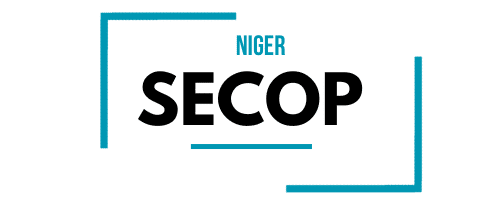The changing landscape of business regulations

In today’s fast-paced business environment, companies are navigating through a complex web spun by the ever-evolving regulatory landscape. From data privacy and protection to sustainability and remote work, the legal and compliance requirements that businesses must adhere to are in a state of constant flux. Change is the new constant, and business leaders must stay agile to thrive.
The United States, along with the rest of the world, is witnessing a significant shift in regulatory changes, placing new demands on corporate governance and risk management strategies. As you, the business stewards, look to future-proof your operations, understanding these shifts is vital for long-term success and resilience.
A lire aussi : Navigating market volatility: tips for stable business growth
This article will dissect the key areas of regulatory concern and offer insights into how your company can adapt to these changes. From state privacy laws to the impact of climate change on supply chain management, and the implications of digital transformation on customer experience, this comprehensive guide aims to help businesses like yours stay ahead of the curve.
Navigating Data Privacy and Protection
The protection of personal data has taken center stage in the regulatory landscape, especially since high-profile breaches have exposed the vulnerabilities in data management. Companies across the globe are now facing stringent data privacy laws, with the United States introducing various state privacy regulations that echo the likes of Europe’s General Data Protection Regulation (GDPR).
A lire également : The revolution of mobile commerce: trends and predictions
The advent of these regulations means that your businesses must ensure transparency, security, and accountability when handling personal data. Implementing robust data governance policies and systems is crucial to maintaining compliance and building trust with your customers. Incorporating privacy by design into your products and services is no longer optional; it’s a legal requirement in many jurisdictions.
Failure to comply can result in substantial fines and reputational damage, which is why many companies are investing in privacy law experts and technologies that can help automate compliance tasks. Regular audits and employee training are essential to ensure that every member of your company understands their role in protecting personal data.
The Era of Sustainability and Corporate Responsibility
Sustainability is no longer a buzzword but a business imperative. The changing landscape includes a stronger emphasis on environmental, social, and governance (ESG) factors. Stakeholders, including consumers, employees, and investors, are demanding more from companies in terms of their impact on the environment and society.
This shift has led to regulatory changes requiring businesses to disclose their sustainability practices and their effects on climate change. For instance, your company may need to report carbon emissions, water usage, and waste management practices. Sustainable supply chain management is also under scrutiny, and businesses must ensure that their operations do not negatively impact the environment or exploit workers.
To stay competitive and compliant, integrating sustainability into your core business strategy is essential. This involves setting measurable targets, investing in sustainable technologies, and fostering a company culture that values corporate governance and social responsibility. Sustainability is not just about meeting regulatory demands; it can also drive innovation, open up new markets, and enhance the overall customer experience.
The Impact of Remote Work on Compliance
The rise of remote work has brought about a set of unique compliance challenges. With employees scattered across different locations, sometimes even different state laws apply, making it harder for businesses to ensure a consistent approach to legal and regulatory requirements.
Data security is a major concern when your employees work remotely. Protecting sensitive company and personal data against unauthorized access becomes more complex when employees use personal devices or unsecured networks. Businesses must establish clear remote work policies that address data protection, privacy, and IT security.
Additionally, labor laws and tax regulations can vary significantly depending on where your employees are located. It is crucial to understand these differences and reflect them in your company’s policies and practices. Maintaining compliance in a remote work environment requires a proactive approach and may involve revising your management practices and investing in secure communication and collaboration tools.
Responding to Regulatory Changes
The only certainty in the regulatory environment is that it will continue to evolve. Keeping up with regulatory changes can be a daunting task, but it is imperative for your businesses to remain compliant and competitive. This calls for a dynamic approach to compliance management.
Staying informed is the first step. Your company should monitor the legal and regulatory developments that impact your industry. Engaging with trade associations, hiring legal experts, and using compliance software can help you stay on top of these changes.
Adaptability is also key. When regulations change, your business processes and strategies may need to pivot. This could involve retraining employees, updating your technology infrastructure, or revising your business model. In essence, your decision-making processes must be flexible enough to accommodate these changes without disrupting your operations.
Lastly, engaging with regulators and policymakers can provide insights into upcoming changes and allow your company to prepare in advance. It can also offer opportunities to influence the development of regulations that affect your industry.
Digital Transformation and the Customer Experience
Digital transformation is reshaping the way businesses operate and engage with customers. However, this transformation also brings new compliance challenges, particularly in terms of data privacy and protection.
As your business adopts new technologies, it’s critical to assess the privacy and security implications. This includes understanding how customer data is collected, stored, used, and shared. Your company must also ensure that digital platforms are compliant with accessibility and consumer protection laws to provide a positive customer experience.
Moreover, as digital channels become the primary means of interaction with customers, ensuring a seamless and secure experience is vital. This requires a robust IT infrastructure and a keen focus on cybersecurity measures to prevent data breaches that could lead to legal actions and loss of customer trust.
In conclusion, the changing landscape of business regulations is a multifaceted challenge that requires a strategic approach. By prioritizing data privacy and protection, embracing sustainability, adapting to the remote work paradigm, responding swiftly to regulatory changes, and integrating digital transformation in a compliant manner, your company can navigate this complex environment successfully.
To thrive amidst these changes, it’s important to view regulatory compliance not as a hurdle, but as an opportunity to strengthen your business and build a solid foundation for future growth. By staying informed, adaptable, and proactive, you can ensure that your company not only meets the current regulatory demands but is also prepared for what the future may bring.
